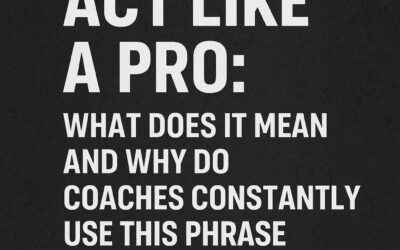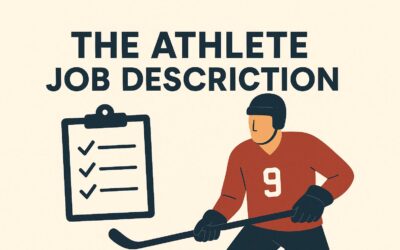|
As the start of fall sports is upon us you have to take a moment to reflect on your off-season. What gains have you made physically? How about technically? Most athletes they spend the majority of their time physically and technically honing their skills, but as the season approaches it’s important to consider your mental preparation for the upcoming season! “When you have the mindset, you can do anything. You are unstoppable!” – Kerri Walsh Jennings
_________________
Understanding the Importance of Mental PreparationPreseason mental preparation helps in many ways. It helps set up your foundation for the season. It will help you handle the pressures of competition, increase focus, cope with anxiety, manage stress, find peak performance and most importantly build your CONFIDENCE! _________________
Preseason Mental Preparation Considerations1. Set Clear GoalsGoal setting is vital for pre-season preparation. SMARTER goals (specific, measurable, achievable, relevant, and time-bound, evaluation, reward) give you direction and purpose. This will help with habits and motivation, especially on those days you do not have 100% in the tank (and there will be days like this). Break down your main goals into smaller, manageable targets and create a detailed plan on how to achieve them. This can be done with monthly, weekly, and daily goals. This roadmap will keep you motivated and focused throughout the season. the key, write them down! Example: An athlete might set a long-term goal to qualify for a major competition by the end of the season, a short-term goal to improve their personal best time by 2% within the next three months, and a daily goal of improving how much they lift in the day compared to the previous day.
2. Visualization TechniquesVisualization is a powerful tool for mental preparation. Spend time each day visualizing successful execution of skills, winning scenarios, and even overcoming challenging situations. This practice not only enhances your self-confidence but also prepares your brain to handle actual game-day conditions by enhancing the mind-body connection. How to Do It:
Check out this video of Aaron Rodgers discussing how he uses visualization in his mental preparation. 3. Focus on Your Self-talkThe conversations you have with yourself are the most important ones each day, be it in training or competition. It can either help or hurt you! Cultivate the habit of positive self-talk to boost your morale. Replace negative thoughts with positive instructional, motivational, or affirmations. Remember, how you talk to yourself influences your performance directly. How to Do It:
4. Develop Pre-Game & Pre-Performance RoutinesRoutines can significantly reduce pre-game jitters by providing a sense of calm and control. A pre-game routine starts before the game or competition and might include meditation, stretching, listening to motivational music, or whatever activities that help you focus, get into the zone. A pre-performance routine is a routine that occurs during the game or competition. Many sports you have a moment before your shift like in hockey, or shot like a free throw in basketball. How to Do It:
Check out this video on Lebron James meditating during a timeout….this is a great example of a pre-performance routine! 5. Manage Stress and AnxietyLearning to manage stress and anxiety is pivotal in sports. Breath work Techniques like deep breathing exercises, progressive muscle relaxation, or mindfulness can be very beneficial. Identify the top 3 ways you manage stress, and develop your support network (those 3-4 people you can rely on to support you during the season). How to Do It:
6. Stay Educated and PreparedKnowledge is power. Take time to learn and understand the game, study the competition, and keep up-to-date with new techniques and strategies. Being prepared can significantly alleviate anxiety and boost your confidence. How to Do It:
7. Reflection and AdjustmentMonitor your progress and reflect on your performances regularly. Be open to making necessary adjustments to your strategies, techniques, or goals as needed. After each game or training session, take time to reflect on what worked and what didn’t and adjust accordingly. Journaling for athletes is one of the best tools you can use. How to Do It:
_________________Summary Mental preparation is as demanding and crucial as physical training. By incorporating these strategies into your preseason routine, you can enhance your mental toughness and resilience, paving the way for a successful and fulfilling season. Remember, a prepared mind is the breeding ground for confidence and victory. Gear up mentally, and the game will follow suit.
Key Take Aways
_________________Self Reflective Moment
How can I incorporate these mental preparation strategies and techniques in my preseason training?
_________________
Do you want help developing your mental game?For more information or to set up your own session with a Certified Mental Performance Consultant to help level up your communication skills, click on the button below for a free intro session.
|




